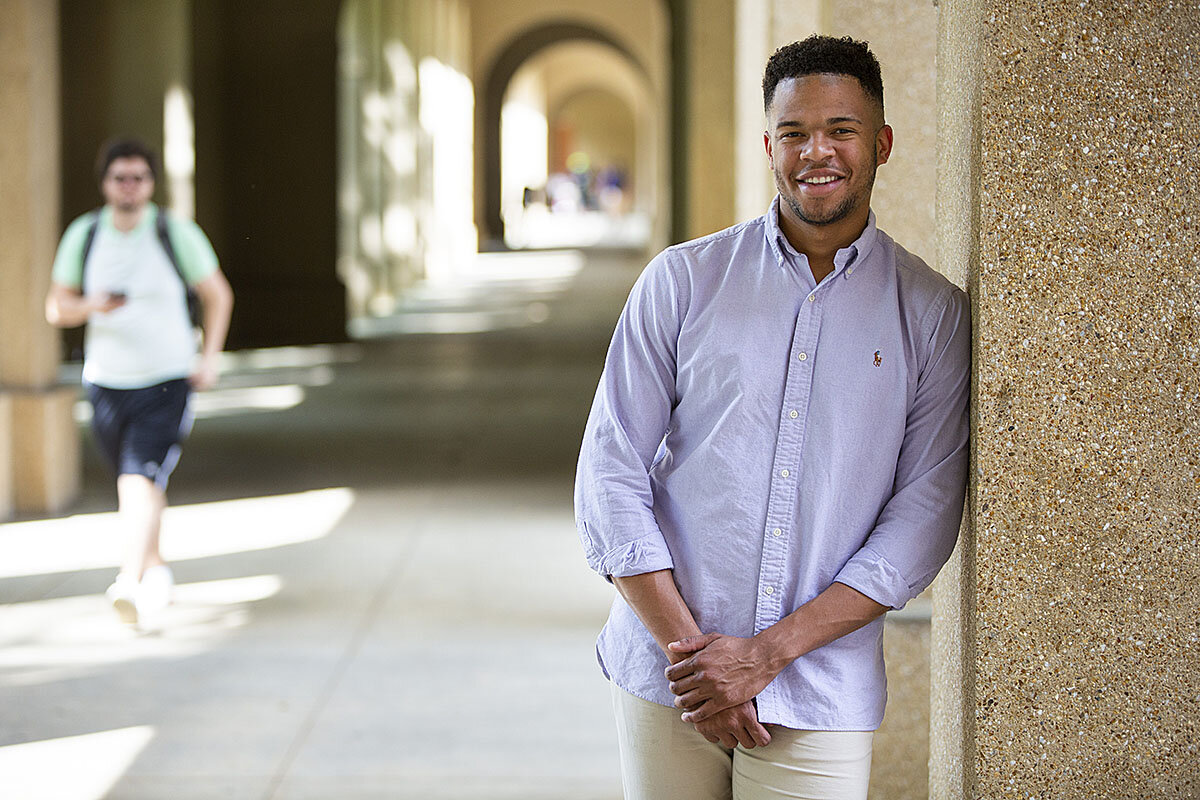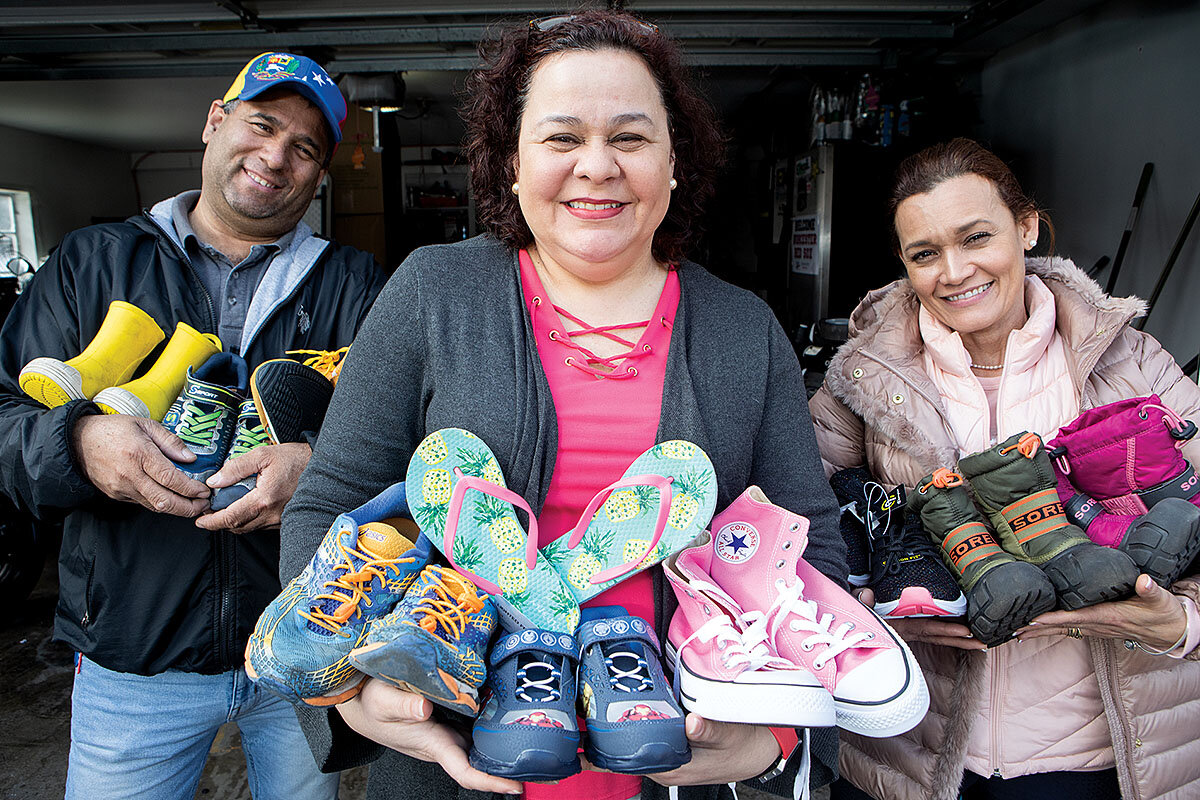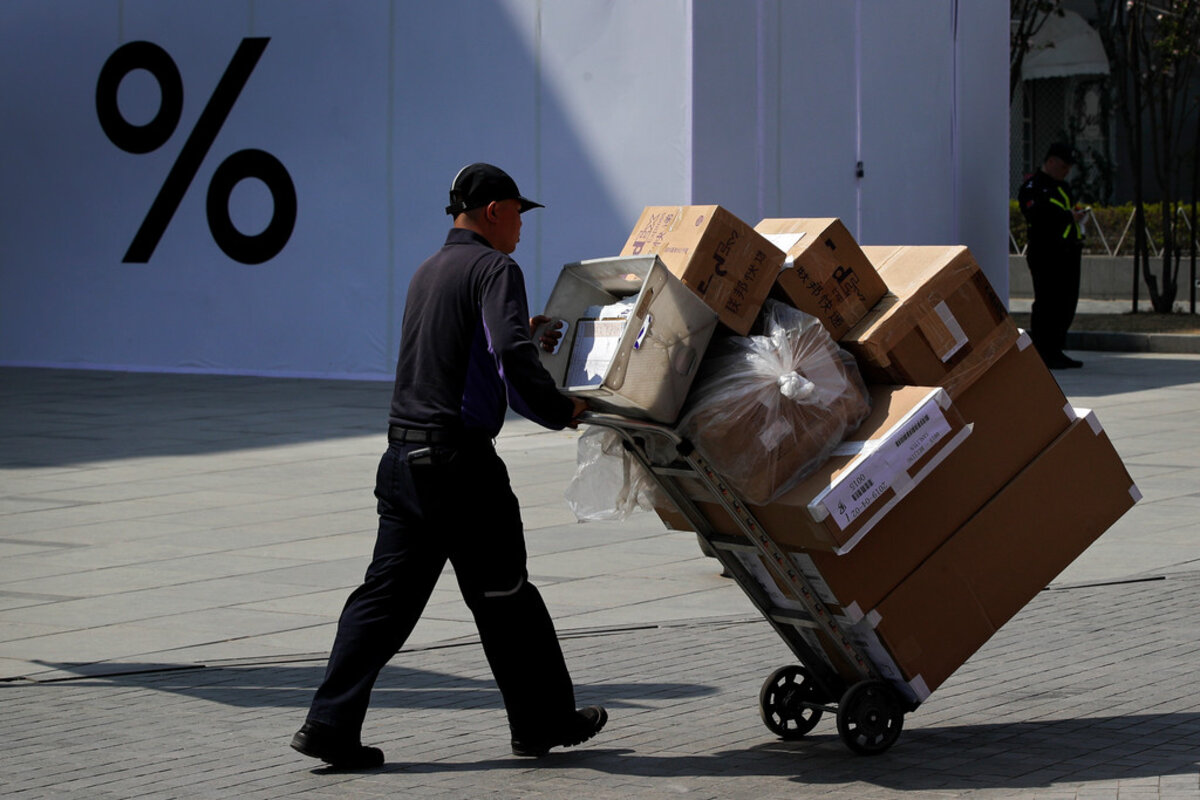In a remarkable scientific achievement, we now have an image of a black hole, for the first time seeing an object math predicted even though its existence initially strained human understanding.
Monitor Daily Podcast
- Follow us:
- Apple Podcasts
- Spotify
- RSS Feed
- Download
 Mark Sappenfield
Mark Sappenfield
Last week I shared with you all what I thought was one of the most important shifts in American politics during the past 20 years: how white liberals have dramatically changed their views on race and immigration.
Why are “political correctness” and the wall such charged topics? Because of this “Great Awokening.”
So it was with interest this week that I read an open letter to fans by Kyle Korver, one of the top white American players in the National Basketball Association. His message? Working in an environment where three-quarters of his colleagues are black has changed his outlook on white privilege.
As a white man, he has the privilege of opting out of the race conversation. His black teammates don’t. And this can lead to a bland acceptance of inequality, he says. It is the wish, he says, “that everyone would stop making everything ‘about race’ all the time.”
The letter is important because it is an elegant example of a broader shift in thought that is convulsing America – and the world. Our conversations about race and immigration are at the heart of polarization from Australia to Germany. Understanding why that conversation has shifted so dramatically in recent years is essential to finding new ground for moving forward together.
Now onto our five stories today. We have an on-the-ground view from one of Syria’s Christian communities, we explore one university’s efforts to change the diversity debate, and we show how shoes from Massachusetts can change lives in Venezuela.










